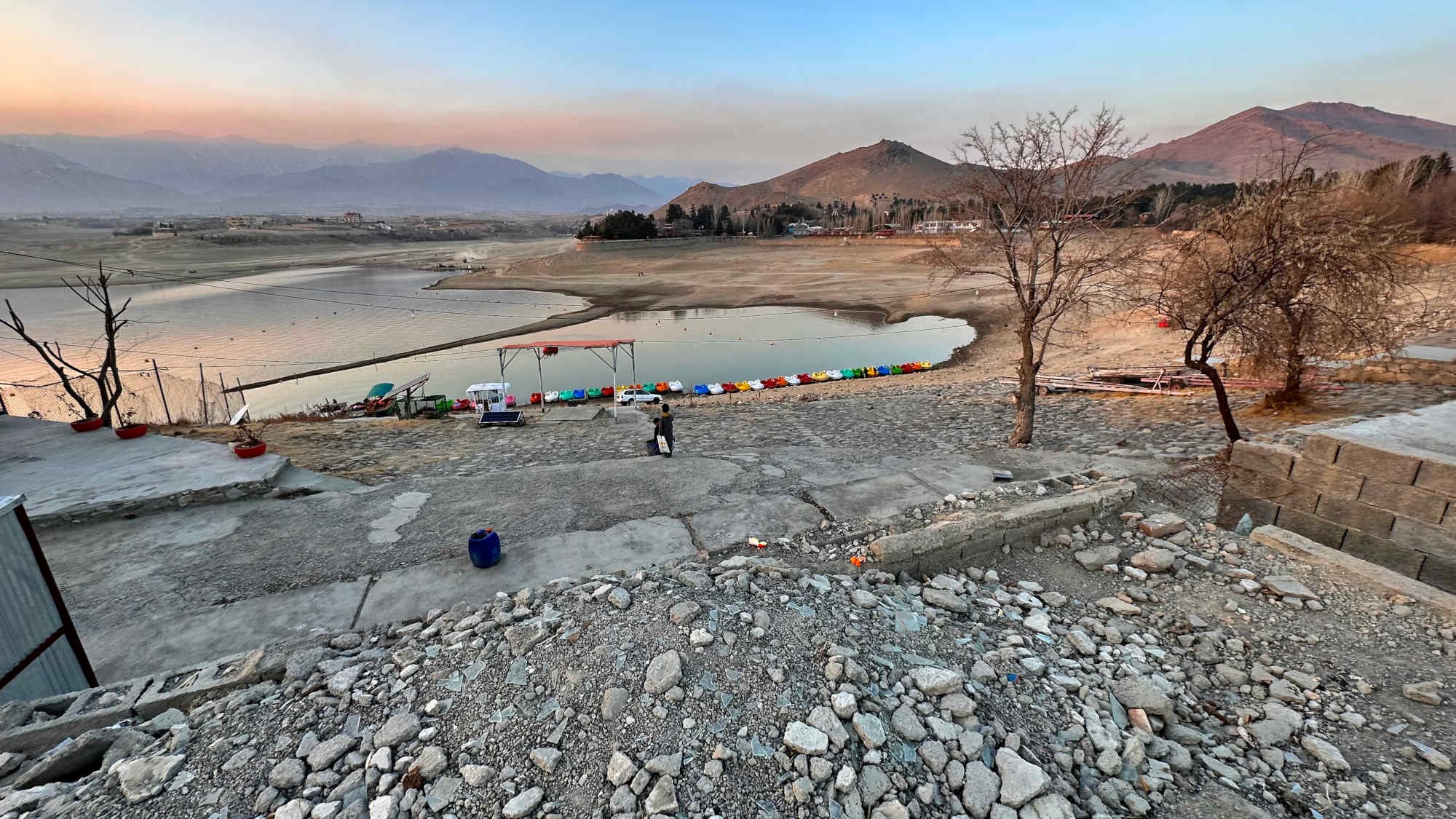THIS PAST DECEMBER, a fleet of colorful swan-shaped boats lined the muddy banks of Qargha Lake, a reservoir on the outskirts of Kabul, Afghanistan. The boats’ owner, 50-year-old Shah Maqsoud Habibi, said his business has vanished, along with much of the lake, a once popular weekend destination for war weary Afghans. Over the past few years, a series of droughts have gripped the country, causing reservoirs and other water bodies to dry up. “If there is no water, there is no business for me, and without work, I cannot feed my family,” said Habibi.
Local residents share similar concerns. “I have lived here for 16 years, and this is the first time I am seeing the lake empty,” said 21-year-old Rashid Samim. For two years, he hasn’t been able to properly water his apple and cherry orchards or his modest potato farm, leading to smaller yields.
The droughts have disrupted life in other ways, too. “On most days, we don’t have enough water for daily chores and drinking,” said Samim. Many Afghan homes receive water from private wells, and people have been forced to dig deeper in search of groundwater. While some residents have turned to private water companies, the cost is out of reach for the average household, and anyway, there simply isn’t enough supply to go around, Samim said.
According to Afghan scientists, the recent droughts are illustrative of the broader impact of climate change on a country already ravaged by decades of conflict and poor water management. The situation was exacerbated in 2021, when the Taliban seized control of the country. The regime abolished the National Water Affairs Regulation Authority, the government agency responsible for water management. Many of the previous government’s technical experts fled Afghanistan, fearing for their safety.
Additionally, many aid agencies suspended their work in the region. Afghanistan now faces a deepening humanitarian crisis that impacts 28.3 million people.
“Some key positions in climate sectors are filled by Mullahs” — or religious scholars — “who have zero understanding about climate issues,” said Najibullah Sadid, a water resource expert who has lived in and conducted research in Afghanistan, and is based at the University of Stuttgart in Germany.
Given this, Afghan climate scientists and water resource experts told Undark, the world must find ways to engage with Afghanistan and its leaders on issues of climate. While international aid organizations have legitimate concerns about partnering with a notoriously brutal regime, these experts say, neither Afghanistan nor the world can afford to ignore the country’s aging water infrastructure and disappearing lakes.
A fleet of swan-shaped boats sits on Qargha Lake, a once popular weekend destination for war weary Afghans. Shah Maqsoud Habibi said his business renting out the boats has vanished, along with much of the lake.
AFGHANISTAN’S MEAN temperature has increased by 1.8 degrees Celsius since 1950, more than twice the global average. The rising temperatures have affected average precipitation leading to floods and landslides, as well as fluctuations in groundwater levels.
“The consequences of higher temperatures are serious,” wrote Assem Mayar, a water resource management expert and former lecturer at Kabul Polytechnic University in a 2022 post published by Afghanistan Analysts Network, a nonprofit policy research organization. Global warming, he wrote, “affects the water cycle, intensifies extreme events such as floods, droughts, glacier melt, and storms, and is leading to a rise in sea levels. The earth only has one atmosphere and global warming harm transcends political boundaries.”
Read full story on Undark
